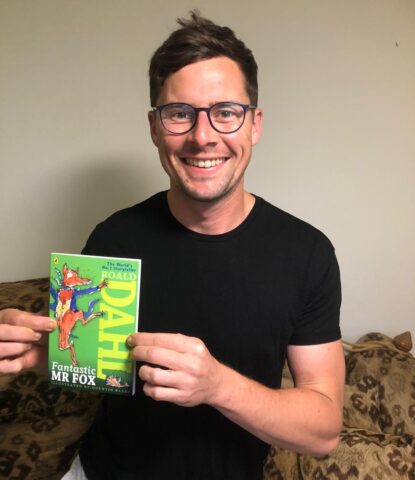We’ve often said that reading is a fabulous way to access new vocabulary in context – improving understanding of the English language through an activity that doesn’t feel like homework. But with so many books out there, how do you know which ones have the appropriate level of language for learners of English? Greg, from our Learn English with Cambridge YouTube channel, has a recommendation!
To begin, reading in English is a great way to widen your range of vocabulary and to consolidate your understanding of grammar. A book will repeat certain words and grammar structures throughout, meaning you have more opportunities to memorise and then recall them. And naturally, improving your grammar and vocabulary will improve your listening, speaking and writing ability too.
Aside from learning English, reading is a great way to boost your brain power. Various studies have shown that reading regularly improves your brain’s cognitive ability, which is summed up by one of my favourite quotes (from playwright, Joseph Addison):
Reading is to the mind, what exercise is to the body.
Also, personally, I really enjoy reading because of its accessibility. Listening to something may not be possible or practical sometimes. You may not always have a speaking partner at hand to practise. However, to start reading, you just need to open a book. And it can be done in a variety of situations, from on a bus, to at a table in a café, to in the waiting room of your dentist!
 Fantastic Mr Fox
Fantastic Mr Fox
My book that I’m going to recommend is the children’s novel ‘Fantastic Mr Fox’, by Roald Dahl.
Its plot revolves around the battles between the cunning Mr Fox and three local farmers. After getting tired of Mr Fox constantly outsmarting them and stealing food from their farms, they decide to get rid of Mr Fox and his family once and for all, by digging up his home. What follows, is a battle of both wit and patience. The farmers try to kill the Fox family while Mr Fox does his best to keep his family alive.
Rich imagery and clever wordplay
I’d recommend this to someone learning English because from a language point of view, it’s a classic Dahl book that contains lots of rich imagery and clever wordplay. He uses lots of interesting adjectives and a wide range of grammar structures. Secondly, from an enjoyment point of view, it is, again, a classic Dahl book. Set in a fantastical world full of the unexpected, it’s likely to develop a love of reading in a child that will stay with them throughout their lives… just as it did with me when I first read it as a 9 year old!
As a little tip to help your students when reading the book, read the following extract with them, to see how we can work out words from context:
He was humming to himself as he put the bricks back in place. “I can still taste that glorious cider” he said. “What an impudent fellow Rat is.”
“He has bad manners” Badger said. “All rats have bad manners.”
Usually, a great way to work out a word from context is to look at the text that follows. If we take the word ‘impudent’, it is explained in the next sentence: “He has bad manners” Badger said. This tells us that the word ‘impudent’ refers to someone who is not very polite and perhaps quite a rude person.
Some questions to have up your sleeve
I hope that this recommendation inspires your students to read Fantastic Mr Fox. When they do, give them a go at answering the following three questions:
- Use five descriptive words to describe Mr Fox.
- How do the different farmers feel about being stolen from by Mr Fox?
- What plan does Mr Fox hatch to feed his family?
Enjoy!
Have you read any other Roald Dahl books? Are you fluent in Gobblefunk? His use of language is very clever – he uses fictional words, but somehow they make perfect sense… Read all about it here.


 Fantastic Mr Fox
Fantastic Mr Fox